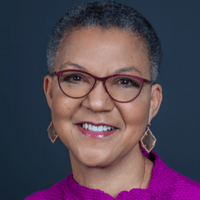The Reemergence of Diversity Fatigue: What Does It Mean Today & How Do We Combat It
- Nicole Jones
- May 17, 2019
- 4 min read
Updated: Jan 9, 2021
A reemerging concept has recently made its way back into the conversation about diversity and inclusion in the workplace: “diversity fatigue.” Though the term is not new, the concept has morphed since its inception.
Diversity fatigue was first complained of as an affliction experienced as the stress felt by managers attempting to recruit, develop, and retain minority talent as part of an initiative to create a more diverse workforce. The outcome too often amounted to little to no progress. As a result, those putting forth efforts to realize these initiatives were left to feel defeated and exhausted. According to an article in The New Yorker, this understanding of diversity fatigue began as early as the late-1990s.
In the mid-2000s, diversity fatigue broadened and more frequently served an excuse for anyone and everyone to feel tired of diversity. An article in Time Magazine explored the concept as an expression of the freedom of association, which it described as “the most treasured of American rights.” The article argued that people were “tired of walking on eggshells” and that the idea of diversity had “worn out its welcome” akin to “a house guest who has stayed too long.” And though the authors recognized people’s general willingness to be tolerant, they took the position that “past a certain point it feels like being ordered to eat the peas.”
The concept of diversity fatigue today could be described as frustration with diversity and inclusion efforts amounting to “all talk and no action.” While corporations, firms, and entire industries have been implementing diversity and inclusion initiatives, little corresponding progress has led to reemerging feelings of discouragement, overwhelm, and fatigue. For some, as noted in an article in The Chronicle of Higher Education, the term “diversity” itself has become so diluted and branded that it no longer has any meaning.
Curious to learn more about the current conversation concerning diversity fatigue, I recently attended a “Women In Leadership Lecture Series” event held by Davis, Graham & Stubbs regarding the topic. The lecture featured a panel of distinguished female leaders, including Joanne Alexander, Executive Vice President and General Counsel for Encana Corporation; Nia C. Mathis, General Counsel for Visible, a Verizon company; and Nancy Reynolds, Senior Counsel and Chief Ethics Officer for Western Union. The panel was moderated by Lauren Casteel, President and Chief Executive Officer for the Women’s Foundation of Colorado.
In a lively and candid discussion, the panelists shared some of the challenges they faced and successes they experienced with respect to diversity and inclusion initiatives in the workplace, along with suggestions on how we can “reboot diversity and inclusion efforts” to “turn small gains into big successes.”
Here are a few of the take-aways that stuck with me:
We need to reframe the conversation about diversity and inclusion. We can do this by focusing on what is important to the women and minorities who are early in their careers. Let them shape the conversation and tell those in leadership what they need to foster growth and development in their careers.
Employ hiring, retention, and advancement measures that focus on merit. In your own career, advocate for yourself and your advancement by focusing on and emphasizing your merit-based accomplishments during reviews, interviews, and other relevant conversations.
Create a culture that truly values diversity and inclusion by creating a leadership team that embodies and lives those values. It is not enough to talk the talk. We need people in leadership that take action and stand behind the talk even when it’s not popular or easy to do so.
Look for and capitalize on opportunities where someone is willing to champion you and to push you forward. For those further along in their careers, be the one who is willing to champion, mentor, and celebrate young women and minority talent.
Don’t be afraid to share the complexities and challenges you have faced as a woman or minority, including any micro-aggressions you may have experienced. This can be eye-opening for those who have not had similar experiences. It can also lead to deeper connections with those who have, and it humanizes you as the sharer. By sharing your story, you encourage and make it okay for others to share their stories.
Start focusing on and celebrating the minor victories that happen along the way toward achieving larger goals. Focusing solely on the big goals can be discouraging and demotivating. When we recognize and celebrate the small successes along the way, we reinvigorate our efforts toward bringing the larger vision to fruition.
And lastly, as Lauren Casteel cleverly wove into the discussion, seek out more people who “love to eat the peas!”

Nicole Jones is currently an Appellate Law Clerk for the Honorable Diana L. Terry at the Colorado Court of Appeals. She is the Editor in Chief of the “Tales from the Trenches” column and a member of the Colorado Women’s Bar Association Publications Committee. Any views or opinions reflected in this publication do not reflect the position of the Colorado Court of Appeals or the Colorado Judicial Department.




















